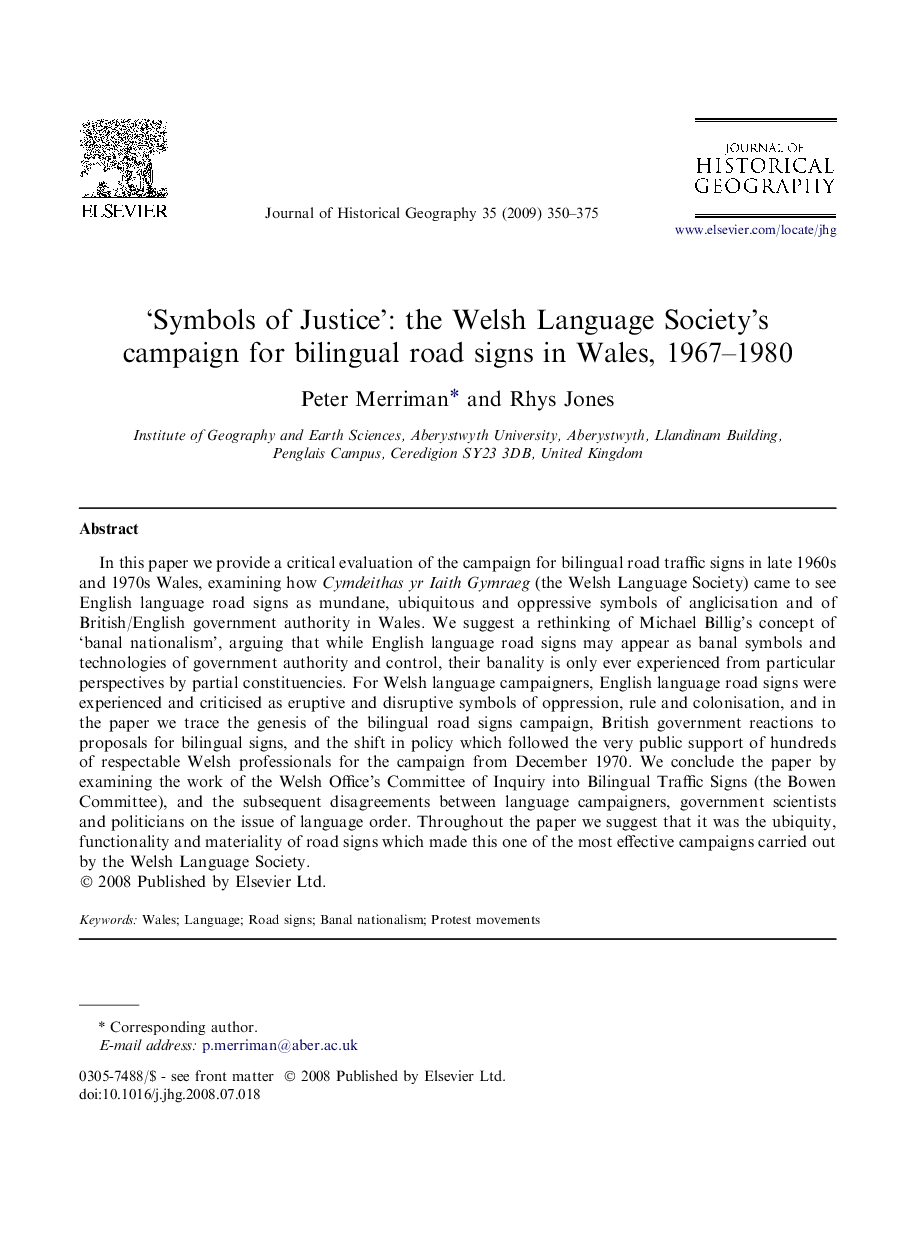| Article ID | Journal | Published Year | Pages | File Type |
|---|---|---|---|---|
| 1039753 | Journal of Historical Geography | 2009 | 26 Pages |
In this paper we provide a critical evaluation of the campaign for bilingual road traffic signs in late 1960s and 1970s Wales, examining how Cymdeithas yr Iaith Gymraeg (the Welsh Language Society) came to see English language road signs as mundane, ubiquitous and oppressive symbols of anglicisation and of British/English government authority in Wales. We suggest a rethinking of Michael Billig's concept of ‘banal nationalism’, arguing that while English language road signs may appear as banal symbols and technologies of government authority and control, their banality is only ever experienced from particular perspectives by partial constituencies. For Welsh language campaigners, English language road signs were experienced and criticised as eruptive and disruptive symbols of oppression, rule and colonisation, and in the paper we trace the genesis of the bilingual road signs campaign, British government reactions to proposals for bilingual signs, and the shift in policy which followed the very public support of hundreds of respectable Welsh professionals for the campaign from December 1970. We conclude the paper by examining the work of the Welsh Office's Committee of Inquiry into Bilingual Traffic Signs (the Bowen Committee), and the subsequent disagreements between language campaigners, government scientists and politicians on the issue of language order. Throughout the paper we suggest that it was the ubiquity, functionality and materiality of road signs which made this one of the most effective campaigns carried out by the Welsh Language Society.
